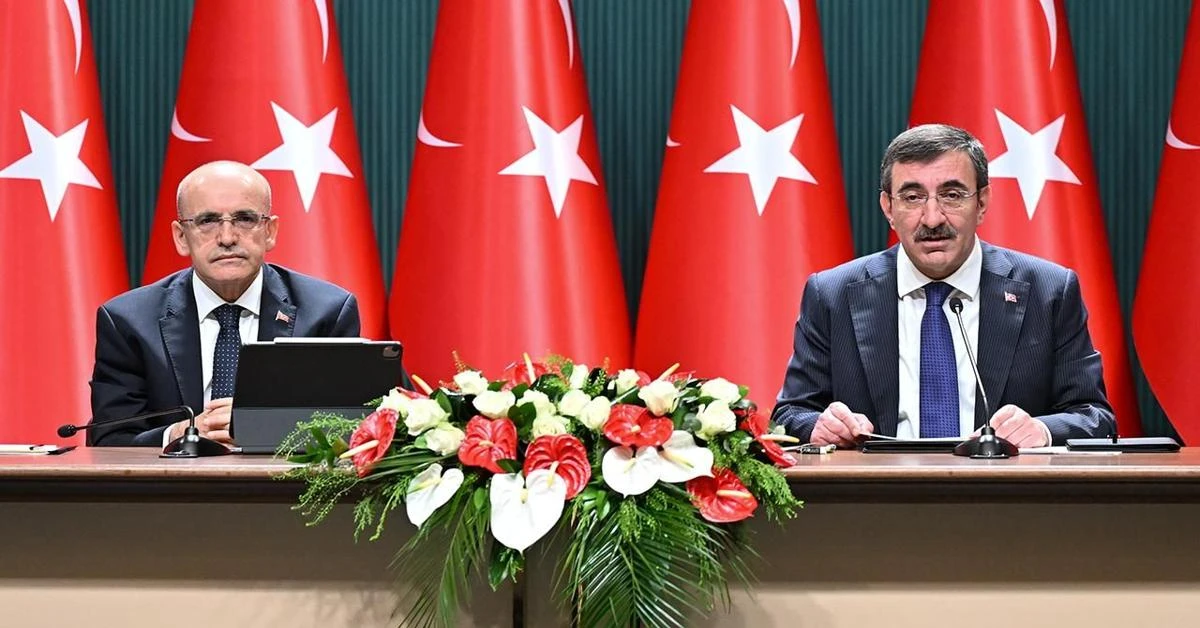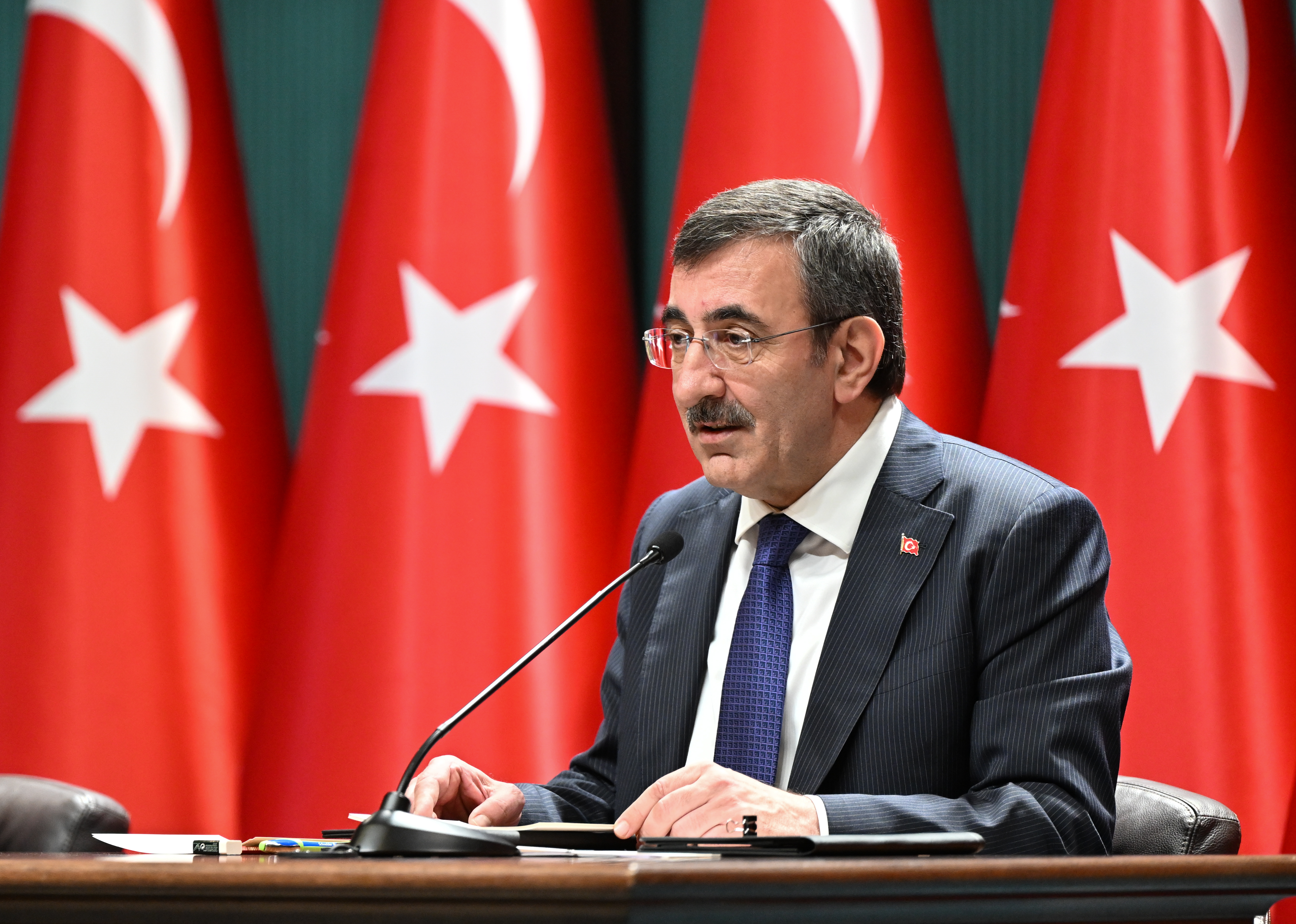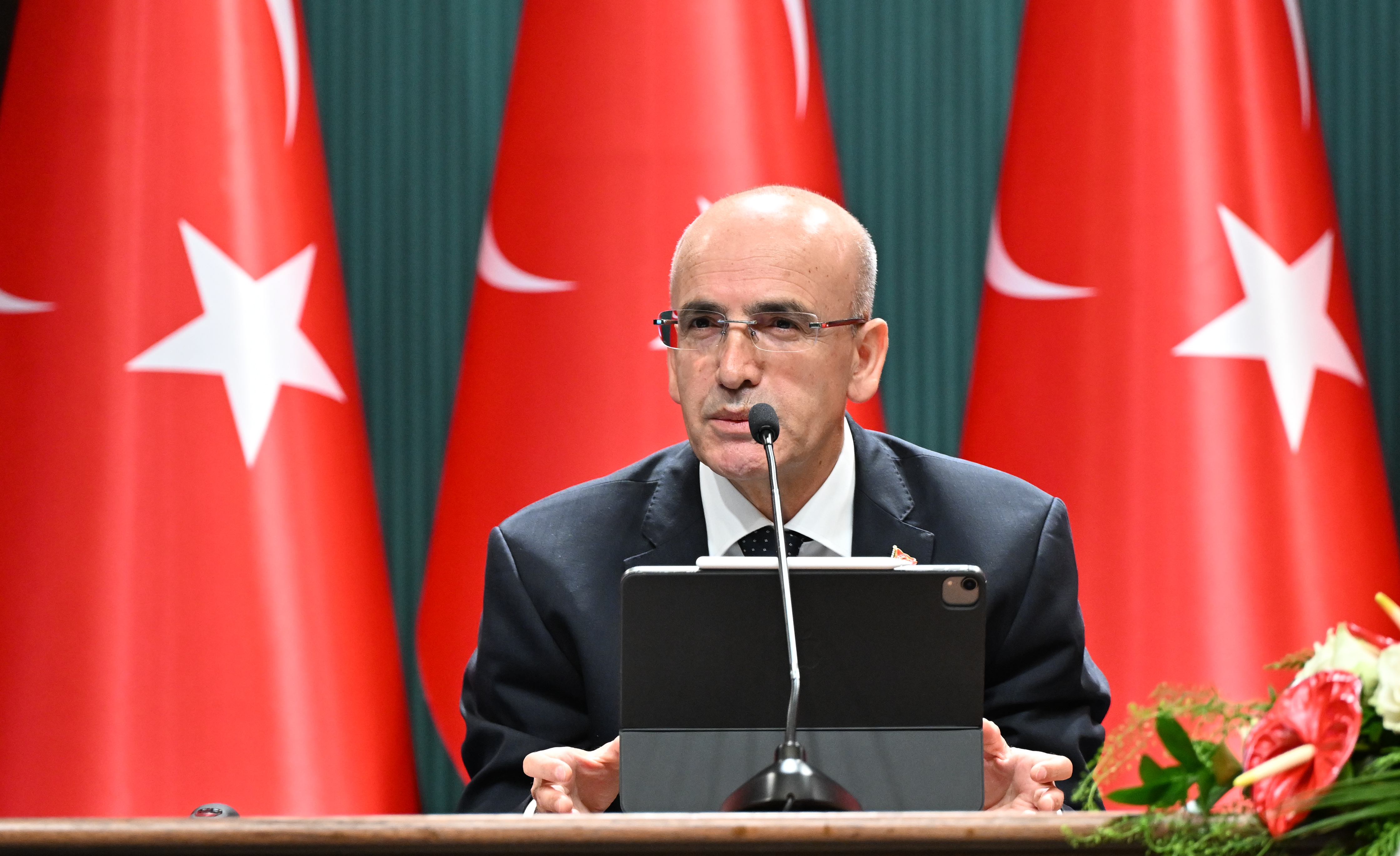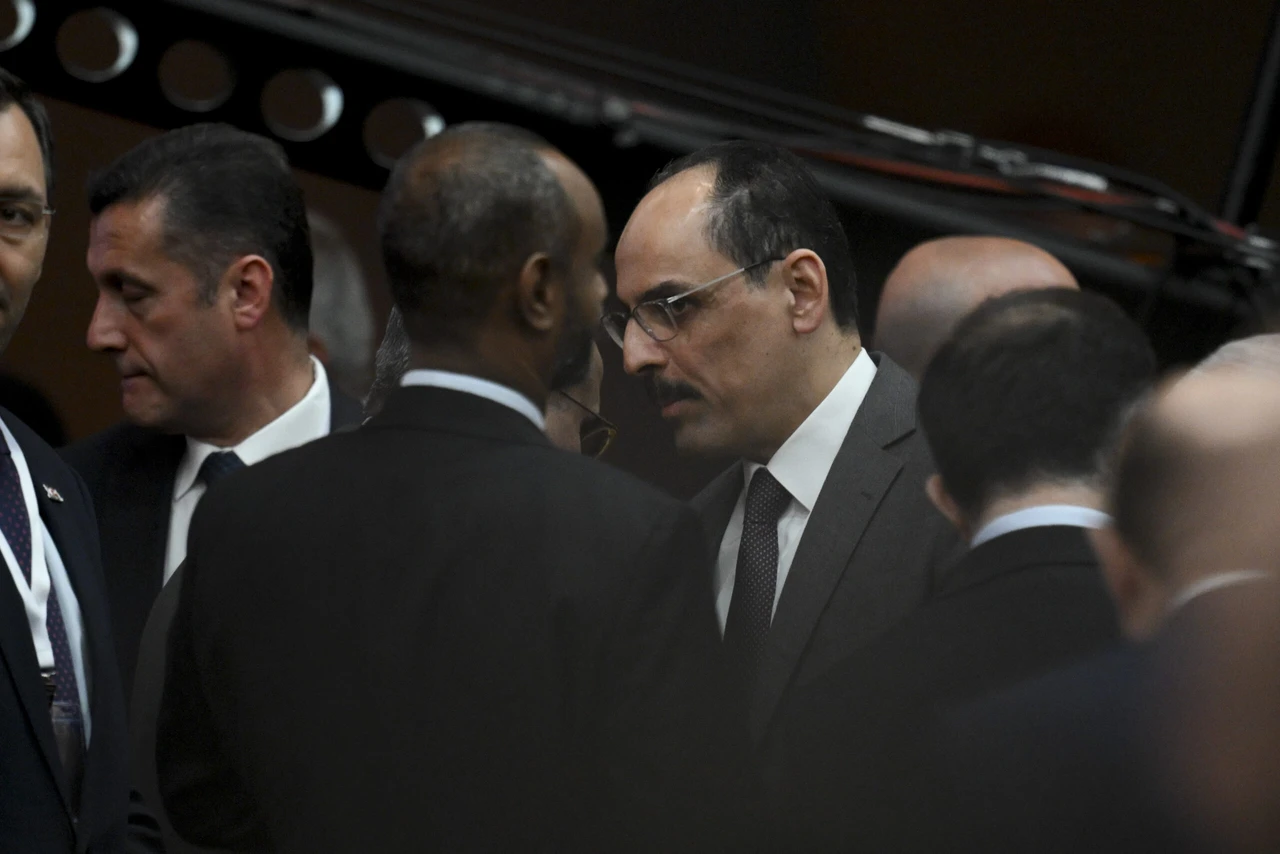Simsek announces savings package for public expenditure

Treasury and Finance Minister Simsek and Vice President Yilmaz announce savings package slated for public expenditure, saying, ‘This is not our first effort, and this won’t be the last package we announce’
Türkiye has unveiled a new savings plan aimed at reining in public spending and enhancing efficiency. The plan, announced on Monday, will prioritize essential state investment projects while curbing unnecessary expenditures.
Vice President Cevdet Yilmaz underscored that the government’s austerity program not only aims to reduce non-essential expenditures but also prioritizes efficiency in public consumption and investment spending.

Yilmaz highlighted two significant developments resulting from the updates on savings and efficient resource utilization. “Firstly, the urgent need to swiftly address the aftermath of last year’s historic earthquake disaster; secondly, our country’s determined resolve to combat inflation, which has become a global agenda post-pandemic,” he stated.
Pointing out that the public savings package is not a standalone decision, Yılmaz stated, “In a broader context, it is meaningful alongside other packages that complement each other.”
Earthquake relief sees increase
Regarding expenditures in earthquake-stricken areas, Yilmaz stated, “Dear members of the press, the initial estimated cost of the earthquakes we experienced last year amounted to $104 billion. The allocation from the central government budget for earthquake relief in 2023 was ₺960 billion, and the initial allocation for 2024 has been set at ₺1.028 trillion.”
“While our budget deficit as a percentage of gross domestic product (GDP) was 5.2% last year, excluding earthquake expenditures, this deficit decreased to 1.6%. A significant portion of this year’s budget deficit, set at 6.4%, is attributed to earthquake-related spending,” he added.
‘We’ve done it in the past, and we will do it again’

Minister Simsek, announcing the austerity package, stated, “Our priority is to bring inflation down to single digits.” He emphasized the aim to increase efficiency in the public sector to achieve savings.
“We will begin to see significant results of our medium-term program’s policies aimed at reducing inflation on an annual basis starting in the second half of this year. We are determined to achieve single-digit inflation by 2026. We’ve done it in the past, and we will do it again,” he affirmed.
Minister Simsek identified price stability, fiscal discipline, a sustainable current account deficit, and structural transformation as the program’s priorities, detailing them as green transformation, digital transformation, and new industrial policy.
Stressing that fiscal discipline is one of the most important characteristics of the AK Party government, Simsek stated the savings and efficiency package contains some differences from the past, emphasizing stricter monitoring mechanisms and strengthened accountability to prevent unjustified deviations.
‘This won’t be the last package we announce’
Regarding future decisions, Simsek said, “This is not our first effort in savings, nor will it be our last. This won’t be the last package we announce.”
Simsek summarized three aspects that distinguish today’s austerity package from past practices: “Firstly, it aims to increase efficiency and achieve savings in the public sector in line with the essence of a medium-term program.
Secondly, this package implements a very strong monitoring, inspection, reporting, and sanction model. Lastly, the measures will be applied to the entire public sector, including administrations, local governments, public enterprises, and revolving funds.”
Three fundamental pillars
Simsek outlined three fundamental pillars of expenditure measures: “Firstly, savings in the public sector; secondly, discipline in budget expenditures; and thirdly, efficiency in public investments.”
Minister Simsek addressed budget discipline, stating that 2024 expenditures would be reviewed, and inefficient expenditures would be terminated from 2025 onward.
Simsek added that, with the exception of mandatory cases, no new projects would be approved in public investments. To manage investments effectively, they plan to introduce a project-based prioritization system.
He specified eight main areas of public savings, including vehicles, buildings, public employment, administrative efficiency, overseas temporary assignments, energy and waste management, communication expenses, and other current expenditures.
Vehicles:
- Increasing efficiency with a public fleet management system, standardizing the number and usage of vehicles.
- Prohibition on purchasing or leasing new vehicles for three years, except as permitted by law.
- Ban on the use of foreign-origin vehicles, except for those with granted permits.
- Personnel shuttle services will be discontinued in public places where public transport is available, except for defense and security purposes.
Public buildings:
- Suspension of new service building acquisitions/constructions for three years, except for earthquake risks.
- Indefinite prohibition on new residential and social facility acquisitions/construction and leases, except for natural disasters and security.
- Economizing existing social facilities, except for defense and security purposes.
Public employment:
- Limiting new personnel recruitment in the public sector to replacements for retirees for three years.
- Developing flexible and remote working models in the public sector.
- Imposing a ceiling on management board fees for public employees, with the excess being deposited into the budget.
Administrative efficiency:
- Restricting administrative expansion.
- Preventing duplicate structures in public administrations.
Overseas temporary assignments:
- Conducting in-service training, meetings, etc., in public facilities.
- Limiting overseas temporary assignments and keeping them to a minimum.
- Ensuring that overseas assignment expenses do not exceed the budget allocation.
Energy and waste management:
- Transitioning to LED lighting for streets and avenues.
- Utilizing renewable energy sources in public buildings and facilities.
Communication expenses:
- Transitioning to e-correspondence systems.
- Digitizing institutional archives.
- Halting printing of documents for publications, reports, etc.
Other current expenditures:
- Avoiding organizing events such as trips, cocktails, meals, etc., except for compulsory situations and international conferences/national holidays.
- Suspending the purchase of assets, except in necessary cases, for three years.



